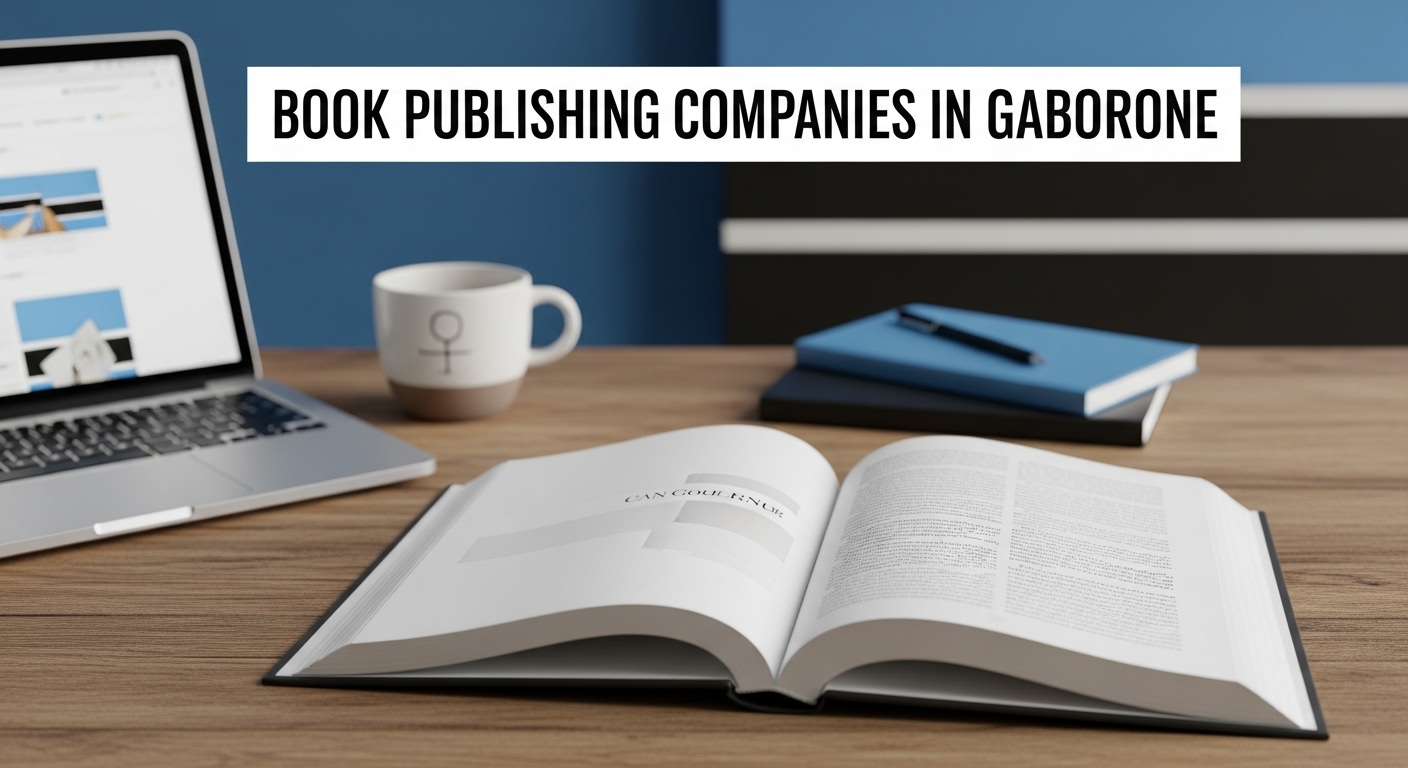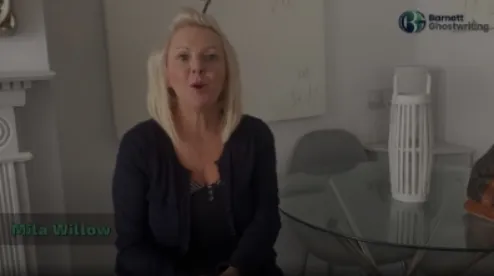
Gaborone’s literary scene has matured steadily over the last decade. What began as a handful of small presses and academic imprints has grown into a modest but vibrant publishing ecosystem that serves local authors, regional storytellers, and a rising wave of business and self-published writers seeking professional distribution and editorial guidance. In 2025, authors in Gaborone can choose from a variety of publishers: traditional houses, hybrid outfits that combine hands-on editorial support with author-led marketing, and service-oriented firms that specialize in ghostwriting, editing, and digital distribution.
1. Barnett Ghostwriting
Barnett Ghostwriting is presented here in an informative, non-promotional manner as a multi-service publishing partner that operates across several markets, offering authors editorial, ghostwriting, and publication-management services. In the Gaborone context, Barnett functions as a full-service collaborator for authors who want help from concept through to finished book files suitable for print and digital distribution.
- Specialties: ghostwriting, developmental editing, project management for non-fiction (memoirs, business books), and hybrid publishing packages.
- Typical clients: first-time authors, busy professionals, and entrepreneurs seeking a turn-key approach.
- Services included: manuscript development, editing passes, cover concepting, interior layout guidance, and assistance preparing files for eBook and print-on-demand.
- Practical notes: works on a project-basis with estimated timelines varying by manuscript length and scope; often recommended for authors who need tight editorial guidance alongside writing support.
2. Botswana Writers’ Press
Botswana Writers’ Press is a locally-minded independent press that champions Batswana voices and regional literature. It focuses on narrative-driven fiction and creative non-fiction that reflect Botswana’s cultural and social landscape.
- Specialties: literary fiction, short-story collections, poetry, and culturally grounded non-fiction.
- Typical clients: local authors, university-affiliated writers, and poets.
- Services included: traditional editorial process, small print runs, and targeted local promotion at events and festivals.
- Practical notes: strong connections to Gaborone literary circles and community events; often suitable for authors seeking a publisher with cultural sensitivity and local distribution focus.
3. Kalahari Academic & Educational Publishing
Kalahari Academic & Educational Publishing focuses on textbooks, educational materials, and scholarly works tailored for schools and tertiary institutions in Botswana and the region.
- Specialties: curriculum-aligned textbooks, teacher resources, academic monographs, and educational assessment materials.
- Typical clients: educators, academics, NGOs, and ministries of education.
- Services included: peer-review coordination, curriculum mapping, editorial oversight for clarity and pedagogical effectiveness, and bulk printing solutions.
- Practical notes: production timelines can be longer due to peer review and ministry approvals; cost structures are often negotiated around institutional orders.
4. Gaborone Business Books
Gaborone Business Books is positioned to serve the business and professional market with a practical publishing model for leadership, entrepreneurship, and corporate histories.
- Specialties: business non-fiction, leadership manuals, company histories, and short practical guides.
- Typical clients: business leaders, entrepreneurs, consultants, and corporate communications teams.
- Services included: developmental editing focused on clarity and practical application, book design for corporate branding, and advisory on bulk distribution to corporate partners.
- Practical notes: often works on co-publishing arrangements with companies that commission books as part of CSR or branding strategies.
5. Pula Stories Press
Pula Stories Press is an independent imprint that blends community publishing with author development, emphasizing narrative diversity and new voices.
- Specialties: debut fiction, youth novels, local short stories, and translated works.
- Typical clients: emerging writers, creative-writing program graduates, and authors seeking mentorship.
- Services included: manuscript workshops, editorial mentorship, small-run print editions, and local promotional events.
- Practical notes: ideal for authors looking for hands-on editorial nurturing; publication timelines are collaborative and often scheduled around community events and launches.
6. Seretse Literary House
Seretse Literary House offers a boutique approach, combining artisanal design and curated editorial choices—appealing to authors who want a distinctive, design-forward edition.
- Specialties: literary fiction, creative non-fiction, and curated anthologies.
- Typical clients: mid-career authors, literary editors, and curators of themed collections.
- Services included: in-depth editorial review, premium cover and interior design, and limited-edition print runs.
- Practical notes: higher per-unit costs due to premium production values; often used for gift editions, festival launches, and special collections.
7. Okavango Digital Press
Okavango Digital Press concentrates on modern publishing formats: eBooks, enhanced digital editions, and print-on-demand (POD) solutions optimized for online retail.
- Specialties: eBook-first publishing, digital marketing optimization, and rapid POD for print copies.
- Typical clients: self-published authors seeking help with digital distribution, entrepreneurs producing short guides, and writers who prefer flexible print runs.
- Services included: eBook conversion, metadata optimization, online retailer setup, and basic marketing packages (email templates, social posts).
- Practical notes: offers fast turnaround for digital publishing; pricing is often modular so authors can pick services a la carte.
8. Tswanana Children’s Books
Tswanana Children’s Books is dedicated to children’s literature that reflects Botswana’s languages, environments, and values. It aims to nurture reading habits by providing culturally relevant stories for young readers.
- Specialties: picture books, early reader series, school storybooks, and bilingual editions.
- Typical clients: children’s authors, illustrators, schools, and NGOs focused on literacy.
- Services included: children’s editing (age-appropriate language), illustration coordination, and classroom-friendly formats.
- Practical notes: illustration timelines can lengthen production; often collaborates with illustrators familiar with regional art styles.
9. Southern Cross Hybrid Publishing
Southern Cross Hybrid Publishing operates a hybrid model that blends author investment with professional publishing services—providing a middle ground between self-publishing and traditional contracts.
- Specialties: hybrid packages for non-fiction and fiction, marketing coaching, and distribution assistance.
- Typical clients: authors who want to retain rights while gaining professional production and marketing support.
- Services included: editorial packages, proofing, print-ready files, and optional marketing campaigns.
- Practical notes: author bears some production costs, but retains a larger share of royalties; timelines depend on chosen package intensity.
10. Pan-Africa Cultural Press (Gaborone Office)
Pan-Africa Cultural Press is part of a regional network that publishes works across southern and eastern Africa. Its Gaborone office focuses on connecting local authors to broader regional audiences.
- Specialties: regional non-fiction, cultural histories, cross-border literary works, and translated texts.
- Typical clients: authors with a regional focus, academics, and cultural historians.
- Services included: editorial review, regional market positioning, and collaborative distribution arrangements across neighboring countries.
- Practical notes: ideal for authors seeking exposure beyond Botswana; publication schedules can reflect coordination with regional partners.
How to Choose the Right Publisher in Gaborone
Choosing a publisher is both a practical and strategic decision. Consider the following points as a checklist when you evaluate options:
- Genre fit: Prioritize publishers that regularly handle your genre—this improves editorial quality and marketing reach.
- Services vs. cost: Decide whether you need full-service publishing (editing, design, distribution) or specific services. Hybrid and digital presses allow pick-and-choose models.
- Distribution reach: If you want regional or international distribution, look for publishers with proven channels or partnerships across southern Africa.
- Rights and contracts: Understand rights retained versus rights assigned—hybrid and self-publishing keep more rights with the author.
- Editorial chemistry: A good editor relationship matters; ask for sample edits or a short initial consultation to assess fit.
- Timelines: Publishing can take months; get a clear timeline for manuscript development, production, and launch.
Publishing Process & Typical Timelines in Gaborone
While timelines vary by publisher, genre, and production complexity, these general stages are common:
- Manuscript development (1–3 months): Includes structural edits, developmental feedback, and possibly rewrites.
- Copyediting and proofreading (2–6 weeks): Focuses on grammar, style consistency, and factual checks.
- Design and typesetting (2–6 weeks): Cover design, interior layout, and final proofing; longer for illustrated or children’s books.
- Printing and distribution (2–8 weeks): Depends on print run size and whether POD or offset printing is used.
- Marketing and launch (ongoing): Pre-launch planning should start 6–12 weeks before release for effective visibility.
Cost Considerations
Publishing costs in Gaborone vary widely:
- Traditional publishing: Author typically pays little or nothing upfront but may face longer waits and lower royalty shares.
- Hybrid publishing: Costs are shared; authors invest in production but keep more rights and royalties.
- Self-publishing: Authors pay for discrete services (editing, cover, distribution) and control the process.
- Educational and institutional projects: Often negotiated via contracts with bulk orders—costs scale with volume.
FAQs
Q: How long does it take to publish a standard 60,000-word novel in Gaborone?
Typically 4–9 months from final manuscript to release.
Q: Can I keep my publishing rights with a hybrid publisher?
Yes—hybrid models often let authors retain most rights.
Q: Are there publishers in Gaborone that handle international distribution?
Yes—some regional presses and hybrid publishers facilitate cross-border distribution.
Q: Do children’s books cost more to produce?
Yes—illustration and color printing increase time and production costs.
Q: Is it better to self-publish or go hybrid for business books?
Hybrid or small business-focused publishers often give the best mix of control and professional polish for business books.
Final Thoughts
Gaborone’s publishing ecosystem in 2025 provides a variety of credible options for different author goals: Barnett Ghostwriting and similar full-service partners for authors wanting a guided, hands-on process; independent presses for literary and culturally specific projects; academic presses for textbooks and scholarly works; and hybrid/digital houses for authors seeking flexibility and faster routes to market. When evaluating publishers, match your project’s genre, budget, and rights expectations with a publisher’s strengths. Above all, prioritize editorial fit and clear contract terms—those two elements most reliably determine whether the publishing relationship will help your book reach the readers you want.





